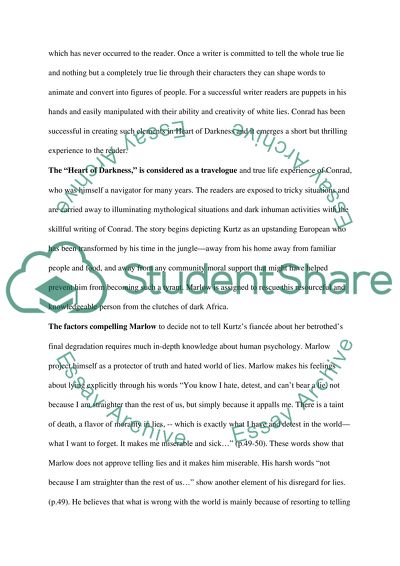Cite this document
(“Answer the following question after reading Heart of Darkness Why does Essay”, n.d.)
Retrieved from https://studentshare.org/miscellaneous/1508511-answer-the-following-question-after-reading-heart-of-darkness-why-does-marlowe-lie-to-kuitzs-fiancee-at-the-end-of-the-heart-of-darkness
Retrieved from https://studentshare.org/miscellaneous/1508511-answer-the-following-question-after-reading-heart-of-darkness-why-does-marlowe-lie-to-kuitzs-fiancee-at-the-end-of-the-heart-of-darkness
(Answer the Following Question After Reading Heart of Darkness Why Does Essay)
https://studentshare.org/miscellaneous/1508511-answer-the-following-question-after-reading-heart-of-darkness-why-does-marlowe-lie-to-kuitzs-fiancee-at-the-end-of-the-heart-of-darkness.
https://studentshare.org/miscellaneous/1508511-answer-the-following-question-after-reading-heart-of-darkness-why-does-marlowe-lie-to-kuitzs-fiancee-at-the-end-of-the-heart-of-darkness.
“Answer the Following Question After Reading Heart of Darkness Why Does Essay”, n.d. https://studentshare.org/miscellaneous/1508511-answer-the-following-question-after-reading-heart-of-darkness-why-does-marlowe-lie-to-kuitzs-fiancee-at-the-end-of-the-heart-of-darkness.


